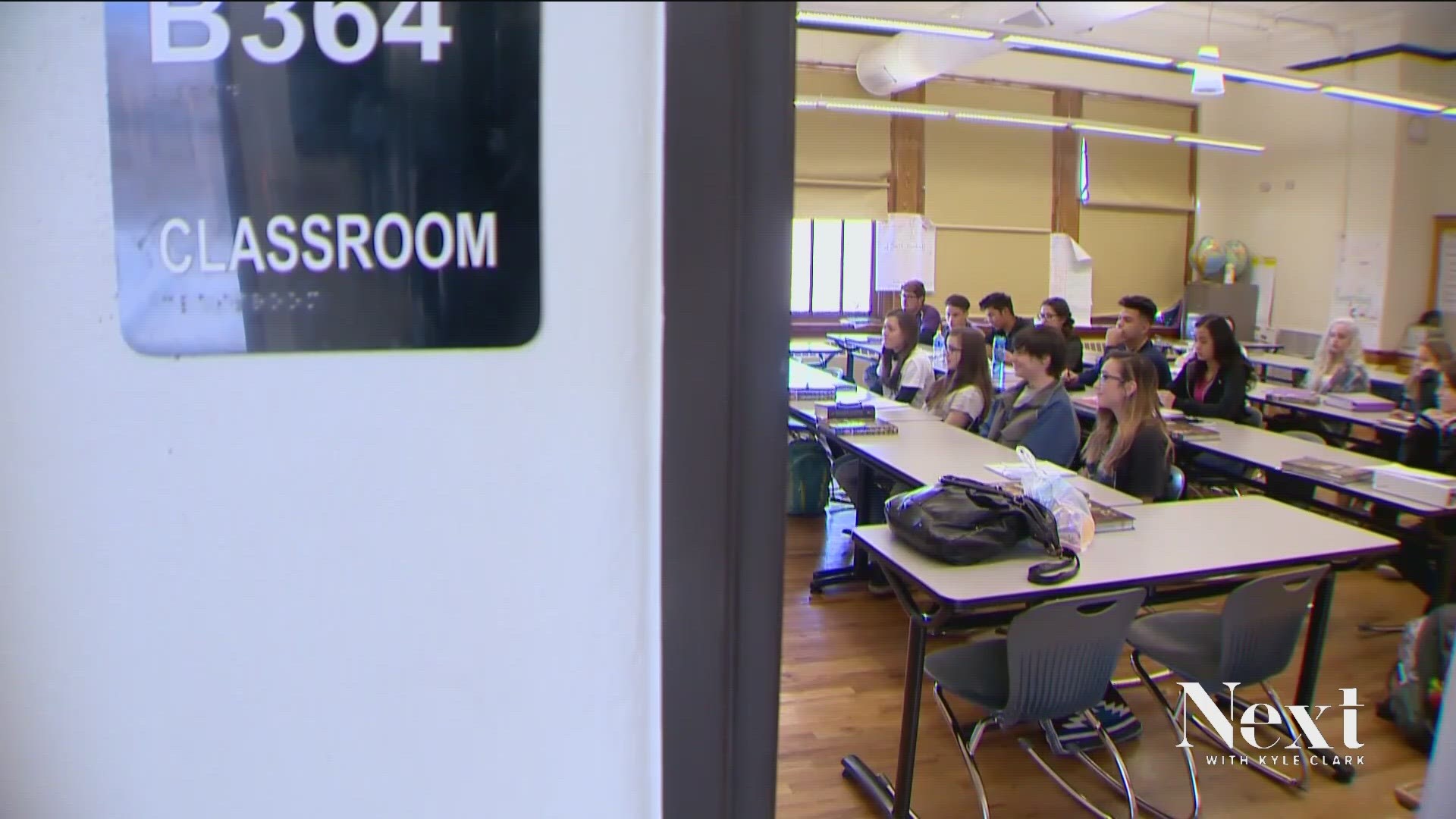DENVER — School resource officers (SROs) in schools does not automatically equal safer schools.
Several research studies have concluded that armed officers in schools does not deter violence in schools.
A study by the University of Albany, SUNY and the RAND Corporation, a nonprofit that uses research to influence public policies, found that between 2014 and 2018, SROs “do effectively reduce some forms of violence in schools, but do not prevent school shootings or gun-related incidents.”
Another study by Hamline University and Metropolitan State University in Minnesota, both in Saint Paul, looked at school shootings from 1980 to 2019 and found no connection between an armed officer and a deterrence of violence.
The former head of safety of Denver Public Schools (DPS), who was at DPS when the school board pulled SROs from the district, believes they belong in schools, regardless of the research.
“Having those SROs in schools, not only creates a deterrent for activity, like what occurred yesterday, but also creates intelligence, relationship building, and opportunities to prevent something like that,” said Mike Eaton, former DPS Dept. of Safety Chief.
In 2020, the Denver School Board unanimously voted to remove SROs from school. Part of the reason cited by the school board were statistics that showed the majority of students being ticketed or arrested were minority students.
“We found that the data that was used was total contacts by all police officers, but when you aggregated data out for just SROs, it was significantly less,” Eaton said. “You were less likely to get a ticket or arrested if an SRO is the one that was dealing with whatever criminal issue that occurred.”
He said that if someone called 911 to a school and a beat officer responded, they may have handled the situation differently than an SRO.
“That officer didn’t have connections to those schools, they didn’t have connections with those kids, and so they were less likely to refer that issue into discipline, or look at other restorative ways to handle it,” Eaton said.
SROs do not do pat down searches of students as a result of a safety plan, like what happened on Wednesday morning at East High School, when a student is accused of shooting two staffers during a pat down search.
“The implementation of a safety plan as part of the threat appraisal allows for students to reintegrate back into the normal school setting, with still some security features in place, to ensure that they’re not bringing any type of weapon or other type of device into the school,” Eaton said.
Now that SROs will be back, who will they be?
“I would hope that Denver Police would look at those SROs that were previously in our schools and select them first because they’re already committed and engaged in our schools,” Eaton said. “We had very little turnover in our SROs and over 80% of the Denver Police officers that served as SROs, were officers of color.”
Former Jeffco Schools safety chief John McDonald said that not all officers want to work with kids, so it is important to find the right officers to be SROs. Eaton agreed.
“Not every cop is wired to connect with students in a certain way, it does require a certain personality,” Eaton said.
He thinks the school and community should decide which officer gets picked.
“You may have to settle with who is the best person that we can do at this time. Long term, it needs to be a collaborative selection process, so you get the right fit for that community,” Eaton said.
SUGGESTED VIDEOS: Next with Kyle Clark

